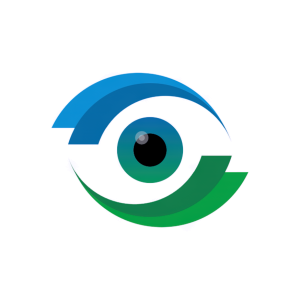Ocugen Announces Dosing Completion of Subjects with Stargardt Disease in Cohort 2 of Phase 1/2 GARDian Clinical Trial of OCU410ST—A Modifier Gene Therapy
Rhea-AI Summary
Ocugen has completed dosing in the second cohort of its Phase 1/2 GARDian clinical trial for the gene therapy OCU410ST, aimed at treating Stargardt disease. This milestone enables the company to advance to higher doses in the dose-escalation study. So far, six patients have been dosed, with three more to receive high doses in the final phase. The ongoing trial is crucial, as Stargardt disease lacks FDA-approved treatments, affecting around 100,000 people in the U.S. and Europe. Preliminary safety and efficacy data from Phase 1 will be shared soon, with a trial update expected in Q3 2024.
Positive
- Completion of dosing in Cohort 2 of Phase 1/2 clinical trial.
- Ongoing positive safety and tolerability profile of OCU410ST.
- Potential to move to higher dose levels in the dose-escalation study.
- Six patients dosed in Phase 1/2 clinical trial.
- Three more patients to be dosed with the high dose in Cohort 3.
- Significant unmet medical need for Stargardt disease addressed by OCU410ST.
- Phase 1 results to be shared soon, with a clinical trial update in Q3 2024.
Negative
- Lack of FDA-approved treatments for Stargardt disease highlights existing challenges.
- Potential risks associated with higher doses in ongoing dose-escalation study.
- Final safety and efficacy of OCU410ST yet to be determined.
News Market Reaction
On the day this news was published, OCGN gained 15.29%, reflecting a significant positive market reaction.
Data tracked by StockTitan Argus on the day of publication.
MALVERN, Pa., May 15, 2024 (GLOBE NEWSWIRE) -- Ocugen, Inc. (“Ocugen” or the “Company”) (NASDAQ: OCGN), a biotechnology company focused on discovering, developing, and commercializing novel gene and cell therapies and vaccines, today announced that dosing is complete in the second cohort of its Phase 1/2 GARDian clinical trial for OCU410ST (AAV-hRORA)—a modifier gene therapy candidate being developed for Stargardt disease as a one-time treatment for life.
"The completion of dosing for Cohort 2 participants signifies an important clinical milestone for our pioneering modifier gene therapy,” said Huma Qamar, MD, MPH, Chief Medical Officer of Ocugen. “We are encouraged by the ongoing positive safety and tolerability profile demonstrated by OCU410ST, enabling us to consider higher doses in patients as we progress with the dose-escalation study. We look forward to sharing preliminary safety and efficacy data from Phase 1 of the clinical trial.”
Six patients with Stargardt disease have been dosed in the Phase 1/2 clinical trial to date. An additional three patients will be dosed with the high dose (Cohort 3) of OCU410ST in the dose-escalation phase.
“There remains a great unmet medical need for patients with Stargardt disease, which is the most common inherited retinal disease affecting the center of the vision and does not have any FDA-approved treatment options. OCU410ST is a novel modifier gene therapy that provides hope to these patients,” said Benjamin Bakall, MD, PhD, Director of Clinical Research at Associated Retina Consultants and Clinical Assistant Professor at University of Arizona, College of Medicine – Phoenix. “I am excited that we completed dosing of the last patient in Cohort 2, who received medium dose of this novel therapeutic leveraging a gene-agnostic approach, at Associated Retina Consultants (ARC) in Phoenix, AZ with the surgical team led by Dr. Mark Kwong, Medical Director of ARC.”
A Data and Safety Monitoring Board meeting will convene next month to review the 4-week safety data of the medium dose cohort before proceeding with Cohort 3 (high dose), which is the final dose in the Phase 1 dose-escalation study.
The GARDian clinical trial will assess the safety and efficacy of unilateral subretinal administration of OCU410ST in subjects with Stargardt disease and will be conducted in two phases. Phase 1 is a multicenter, open-label, dose-ranging study consisting of three dose levels [low dose (3.75×1010 vg/mL), medium dose (7.5×1010 vg/mL), and high dose (2.25×1011 vg/mL)]. Phase 2 is a randomized, outcome accessor-blinded, dose-expansion study in which adult and pediatric subjects will be randomized in a 1:1:1 ratio to either one of two OCU410ST dose groups or to an untreated group.
Ocugen is committed to finding solutions for people with inherited retinal disease for whom no effective treatment options exist. While an orphan disease, Stargardt affects approximately 100,000 people in the United States and Europe combined.
The Company expects to provide a clinical trial update for OCU410ST in the third quarter of 2024.
About Stargardt Disease
Stargardt disease is a genetic eye disorder that causes retinal degeneration and vision loss. Stargardt disease is the most common form of inherited macular degeneration. The progressive vision loss associated with Stargardt disease is caused by the degeneration of photoreceptor cells in the central portion of the retina called the macula.
Decreased central vision due to loss of photoreceptors in the macula is the hallmark of Stargardt disease. Some peripheral vision is usually preserved. Stargardt disease typically develops during childhood or adolescence, but the age of onset and rate of progression can vary. The retinal pigment epithelium (RPE), a layer of cells supporting photoreceptors, is also affected in people with Stargardt disease.
About OCU410ST
OCU410ST utilizes an AAV delivery platform for the retinal delivery of the RORA (RAR Related Orphan Receptor A) gene. It represents Ocugen’s modifier gene therapy approach, which is based on Nuclear Hormone Receptor (NHR) RORA that regulates pathway links to Stargardt disease such as lipofuscin formation, oxidative stress, compliment formation, inflammation, and cell survival networks.
About Ocugen, Inc.
Ocugen, Inc. is a biotechnology company focused on discovering, developing, and commercializing novel gene and cell therapies and vaccines that improve health and offer hope for patients across the globe. We are making an impact on patients’ lives through courageous innovation—forging new scientific paths that harness our unique intellectual and human capital. Our breakthrough modifier gene therapy platform has the potential to treat multiple retinal diseases with a single product, and we are advancing research in infectious diseases to support public health and orthopedic diseases to address unmet medical needs. Discover more at www.ocugen.com and follow us on X and LinkedIn.
Forward-Looking Statements
This press release contains forward-looking statements within the meaning of The Private Securities Litigation Reform Act of 1995, including, but not limited to, statements regarding qualitative assessments of available data, potential benefits, expectations for ongoing clinical trials, anticipated regulatory filings and anticipated development timelines, which are subject to risks and uncertainties. We may, in some cases, use terms such as “predicts,” “believes,” “potential,” “proposed,” “continue,” “estimates,” “anticipates,” “expects,” “plans,” “intends,” “may,” “could,” “might,” “will,” “should,” or other words that convey uncertainty of future events or outcomes to identify these forward-looking statements. Such statements are subject to numerous important factors, risks, and uncertainties that may cause actual events or results to differ materially from our current expectations, including, but not limited to, the risks that preliminary, interim and top-line clinical trial results may not be indicative of, and may differ from, final clinical data; that unfavorable new clinical trial data may emerge in ongoing clinical trials or through further analyses of existing clinical trial data; that earlier non-clinical and clinical data and testing of may not be predictive of the results or success of later clinical trials; and that that clinical trial data are subject to differing interpretations and assessments, including by regulatory authorities. These and other risks and uncertainties are more fully described in our periodic filings with the Securities and Exchange Commission (SEC), including the risk factors described in the section entitled “Risk Factors” in the quarterly and annual reports that we file with the SEC. Any forward-looking statements that we make in this press release speak only as of the date of this press release. Except as required by law, we assume no obligation to update forward-looking statements contained in this press release whether as a result of new information, future events, or otherwise, after the date of this press release.
Contact:
Tiffany Hamilton
Head of Communications
Tiffany.Hamilton@ocugen.com








